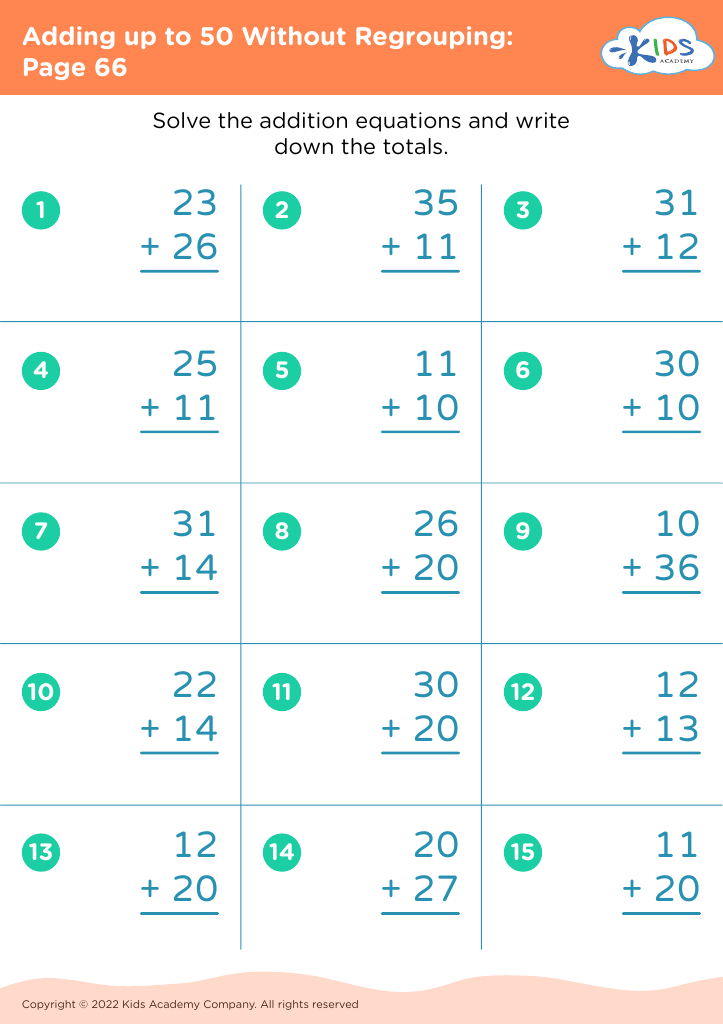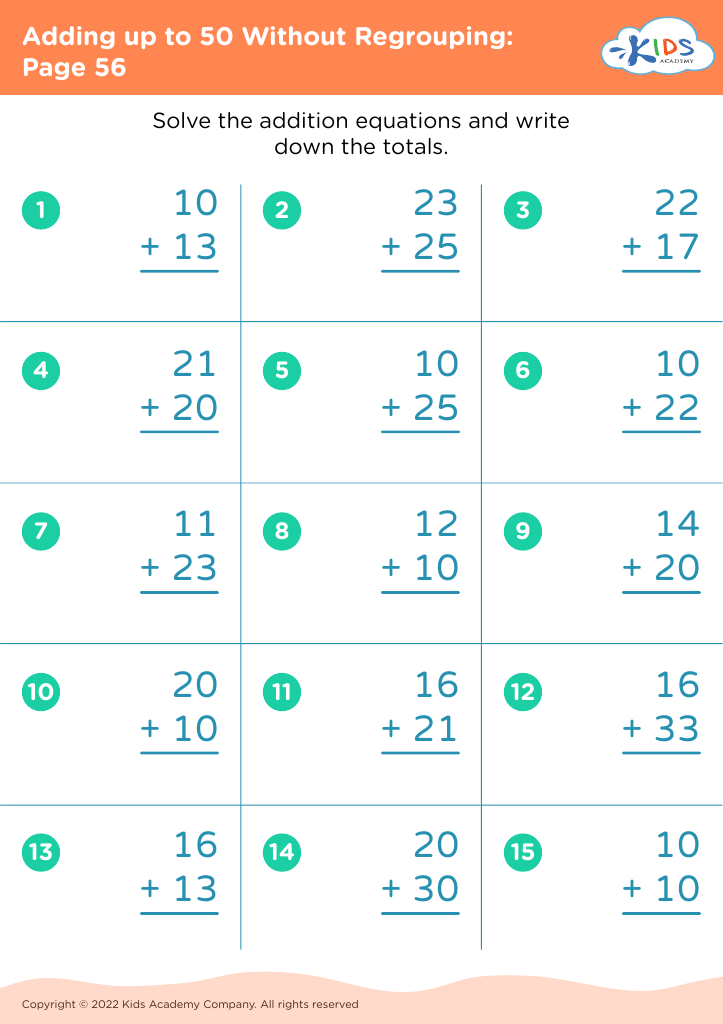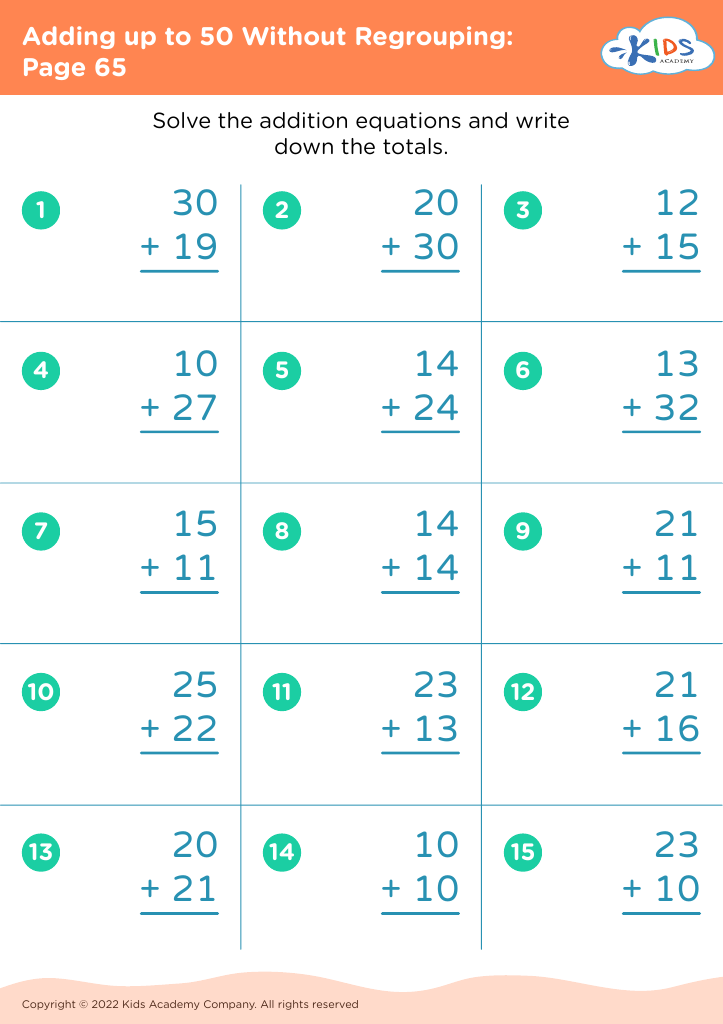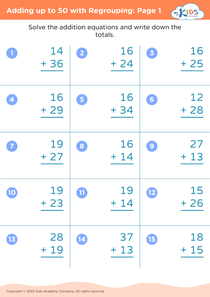Understand fractions Adding up to 50 Without Regrouping Worksheets for Ages 4-8
4 filtered results
-
From - To
Explore our engaging "Understand Fractions: Adding up to 50 Without Regrouping" worksheets designed for ages 4-8. These printable resources focus on building foundational math skills in young learners, enabling them to grasp fractions while practicing addition up to 50 without regrouping. Our colorful, interactive worksheets make learning fun, combining visuals and exercises that are perfect for early grade students. Foster a strong understanding of fractions with purposeful activities tailored to the cognitive abilities of young minds. Visit Kids Academy for resources that turn learning math into an enjoyable adventure, helping kids achieve math proficiency with confidence and ease.
Parents and teachers should prioritize understanding fractions and addition up to 50 without regrouping for children ages 4-8 because these skills form the foundational building blocks for more advanced mathematical concepts. At this tender age, young learners are developing their numerical sense and basic arithmetic skills, which are crucial for their academic success in later years.
Mastering basic addition lays the groundwork for problem-solving abilities, logical thinking, and mental math skills. When children can add numbers within 50 without regrouping effortlessly, they build their confidence in handling more complex equations as they progress. This achievement sets a positive trajectory in their mathematical learning journey.
Fractions, even in their simplest form, introduce young learners to the concept of parts and wholes. This understanding is essential for developing proportional reasoning, which is used in everyday situations like cooking and sharing. Early exposure to fractions ensures that children are better prepared to tackle advanced topics such as division, decimals, and percentages in higher grades.
Moreover, teaching these concepts at an early age fosters a love for math, making children more inclined to engage with and enjoy the subject. By ensuring that children grasp these foundational skills, parents and teachers enable them to approach more complex mathematical challenges with ease and confidence in the future.



















